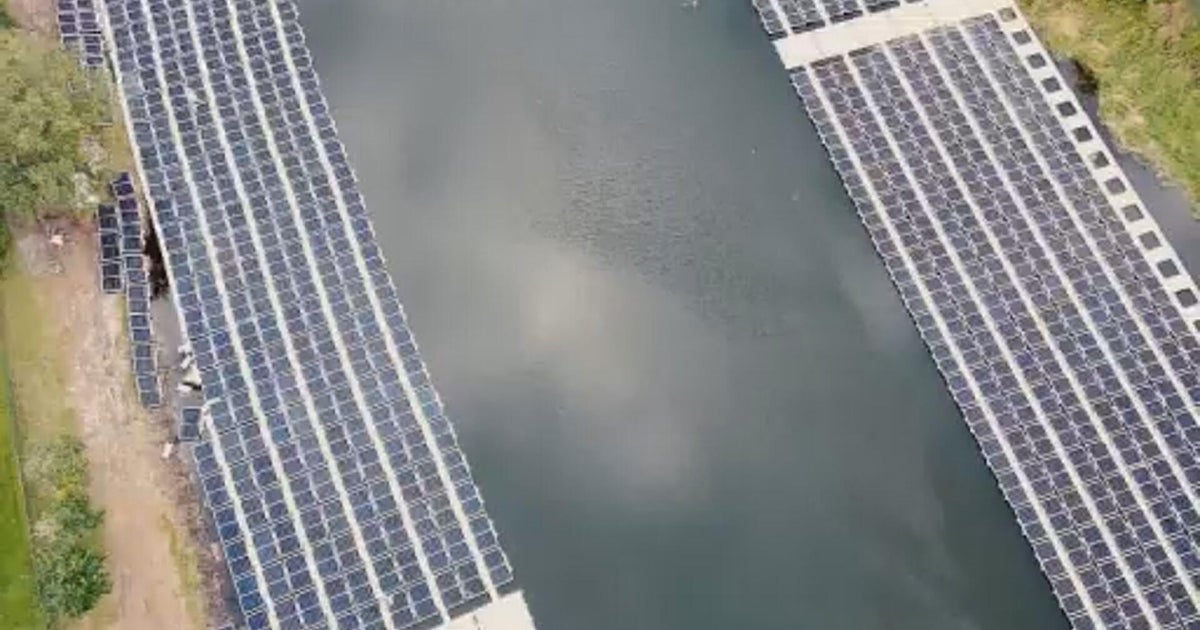There is no shortage of sunshine in South Florida, which makes it a perfect place to harness that sunshine and turn it into electricity. What there is a shortage of, however, is land — specifically, land needed to secure those solar panels.
Nova Southeastern University is addressing that land shortage by moving the panels to the water, specifically the numerous storm and drainage ponds that you find all over the area.
“Freeing up land space we can use for other things for our students is important to us,” said NSU Physical Plant Director Seth Mangasarian.
Not far from Mako Hall is one of those ponds that is in the process of having 1,200 solar panels installed, not around the lake but on it. This is a project that is being done in partnership with D3 Energy as one of their numerous floating solar projects they have across the state.
“We feel like it’s a great application where land or roof space isn’t available to deploy this on bodies of water,” said Stetson Tchividjian, the managing director for D3 Energy.
They have these panels, which provide electricity to just a few hundred feet away and hold over 600 students.
“This provided an opportunity and helps us offset the energy we are using on campus,” Mangasarian said.
Sydney is one of those students who resides in Mako Hall.
“I really like the idea that they are offering renewable energy to offset the cost of utilities since there are a lot of students here,” she told CBS News Miami.
A great and green opportunity with its challenges
The hall opened in 2019, but lacks the space around it or on it for the solar panels. It was a great opportunity for NSU to advance its green initiatives, but it also posed challenges.
“This is new technology — it has to be storm safe, [and] we have to work with the neighbors on construction,” said NSU Project Manager Carlos Guiovani Caceros.
When it comes to being storm safe, these panels are designed to withstand the winds of a Category 5 hurricane.
“There are anchors every other panel, which makes the entire structure heavily anchored and secure,” Caceros added.
Floating solar panels provide additional benefits aside from providing power
Placing the panels on water as opposed to land also adds another benefit.
“The hotter a panel gets, the less power it produces, so keeping it 18 to 24 inches off the water keeps it cooler and increases generation,” Tchividjian said.
The added benefit to the panels to produce power while keeping them off campus. It’s an added benefit of floating solar that students on the campus are already recognizing.
“I think it’s great, a really nice thing to do,” said Lucas DaSilva. “Looking at it instead of just talking about it. A lot of people talk about it, but to actually do it is a good thing.”
Large-scale future projects
Projects like this, according to D3 Energy, are more suitable for large-scale locations like NSU and would not work to power a single small home with a pool or lake nearby. There is, however, potential for entire communities or home associations since there is no shortage of small bodies of water and canals here in South Florida.



